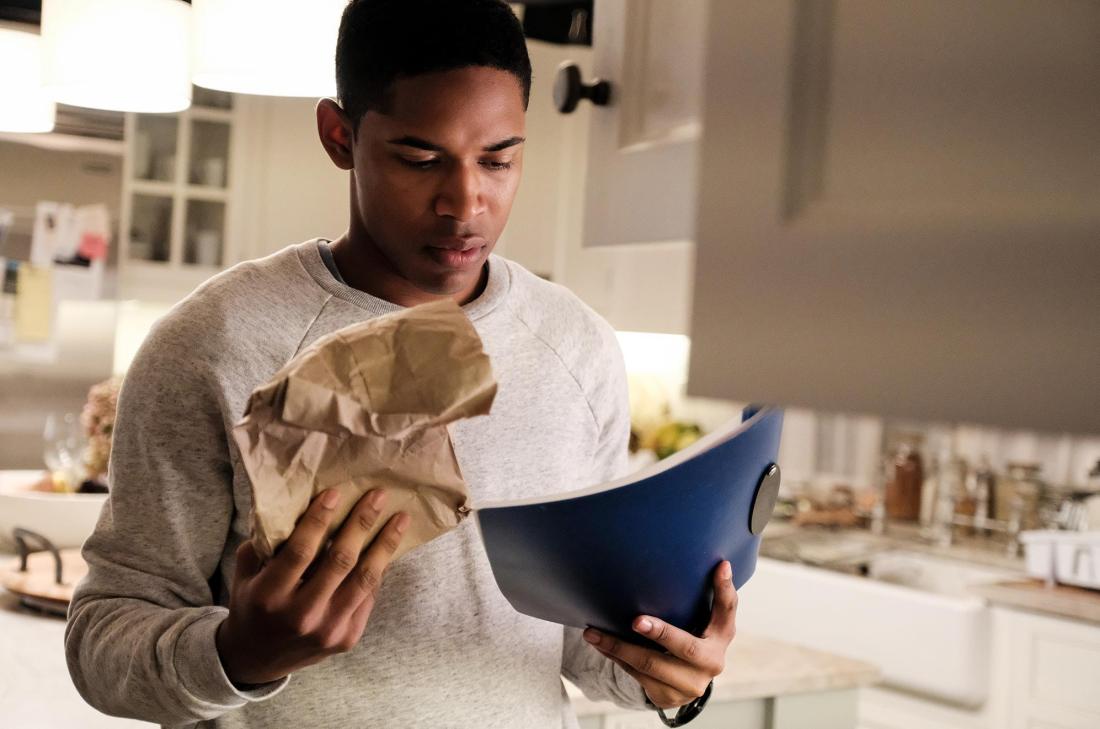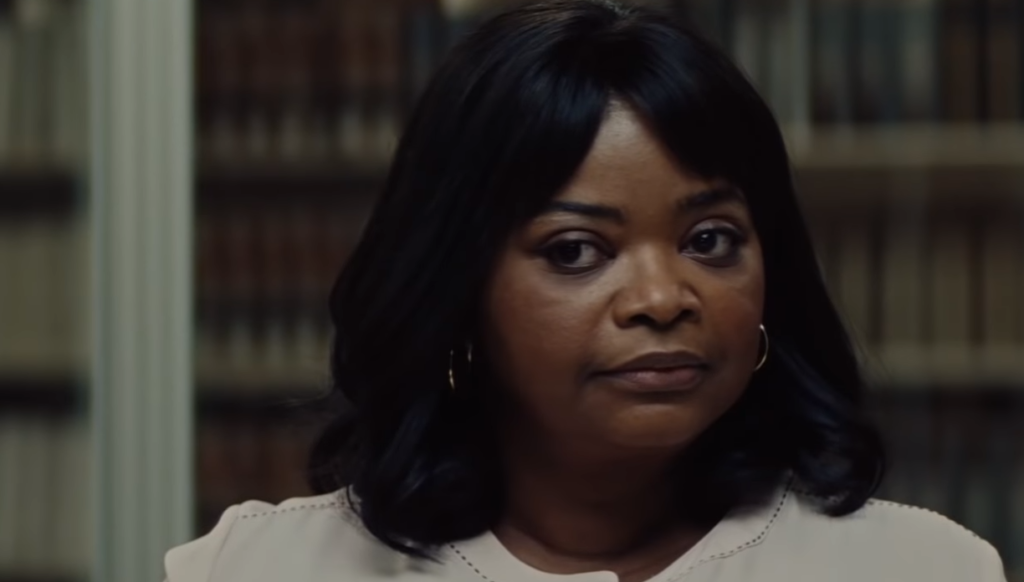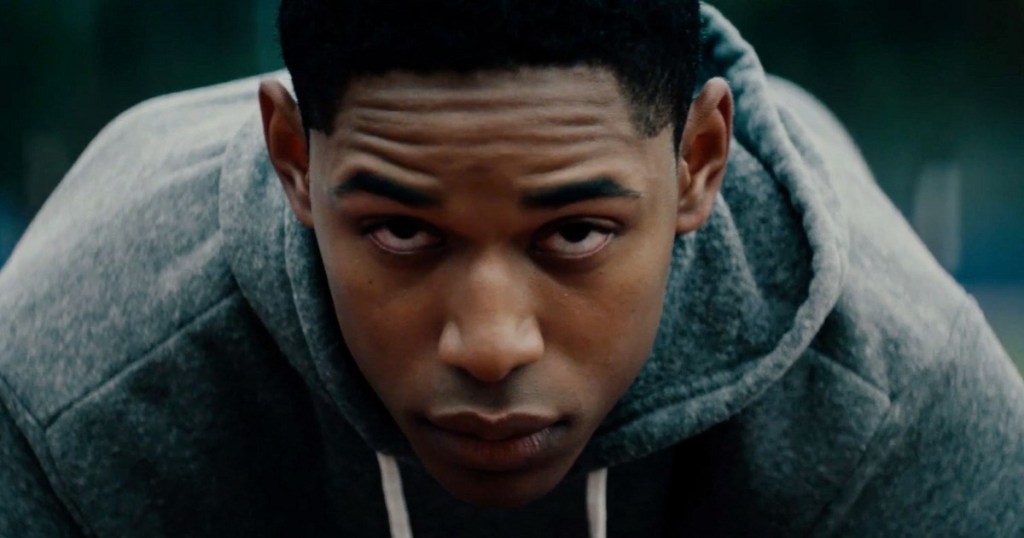Luce (2019) is a drama directed by Julius Onah and co-written by Onah and JC Lee, who also wrote the play this film is based upon. It stars Kelvin Harrison, Jr. as the titular Luce, a black high school senior and model student who is embroiled in controversy after a questionable writing assignment draws the attention of his concerned history teacher (Octavia Spencer). His adopted parents (Naomi Watts and Tim Roth) are taken on a wild ride of doubt and mistrust as their perception of who their son really is challenged. It’s an endlessly-fascinating and complex tale that has enthralled critics but gone woefully unnoticed by the general public. What gives?

I hadn’t planned on checking out Luce while it was still in theaters, figuring it wouldn’t be up for any awards and I could just catch it on some streaming service in a few months. I was also wary of Julius Onah’s involvement because his last film ended up being my least favorite film of 2018, full stop, and wasn’t sure if I trusted his filmmaking abilities. However, with the recent festival success of the upcoming Oscar-hopeful film Waves, newfound attention has been shone upon Kelvin Harrison, Jr. with many heralding him as the next “big thing” and the breakout star of the year. Naturally I was intrigued, and I found a theater that was showing the film for cheap nearby, so I decided to check it out for his performance alone. And yes, his performance is excellent, but I was also very impressed with the story and the intricate web it weaves with such complex and yet very grounded themes.
The film deals heavily with the subject of doubt, expectation, and intent, particularly surrounding the black characters like Luce. We the audience are often left as in the dark as Luce’s parents are as to what Luce’s motivations are in a given moment, only able to infer his frame of mind based on context clues. Those clues are often informed by our preconceived ideas of what people are like, and as the film often reminds us, those preconceptions can get us into trouble. When we look at Luce, we see an amiable, charismatic, “good” person who could never do wrong. We have these ideas about people based on the brief windows we get into their beings: DeShaun is the stoned slacker, Stephanie is the quiet victim, Ms. Wilson is an uptight “bitch”. But the more we learn about these people, the more we realize how much nuance and complexity there is to them beyond our surface-level evaluation of their character. As Luce himself says at one point (paraphrased), “You never really know what someone’s going through.”

This is especially effective when the story is framed through the eyes of Luce’s parents. They trust Luce implicitly, knowing that he’s a “good kid” who has survived a rough upbringing to thrive in the complex social structure of America high school. Sure, he has his secrets and his vices, but they are willing to overlook them because of what a good example he has set in the community. But as the plot develops, their faith in him is shaken by a series of questionable decisions and curious inconsistencies. First he writes a questionable assignment paper (so what?). Then illegal fireworks are found in his locker (hmm, that’s weird…). Then he passes it off as a “shared locker” mixup (okay, makes sense, sorry for doubting you son). Then it is learned that he was present at a party where a girl was sexually abused (yikes). Then it is implied he was involved in the abuse (what?!). Then we learn he intervened in the incident (thank god). This roller-coaster of ups and downs continues for the entire runtime, and his parents are the perfect lens through which to view Luce as the filmmakers want us to: constantly questioning our own viewpoint on what kind of young man he is.
The story cleverly withholds information and context from the audience for as long as possible to allow us to solidify these notions of ours, before assaulting all of them with the truth (or a version of it, anyway). This applies not only to Luce, but the other major characters as well. We assume that characters like Luce’s parents or the principal are so quick to accept Luce’s story because of his unimpeachable character, but later learn that they are willing to be obstinate in the face of conflicting data to advance their own agendas. Even the “antagonist”, Ms. Wilson, has a similar arc (but in reverse): we assume she is quick to judgment based on her stereotypes of the students, but later learn that she is dealing with much more complete information than we are and her judgments are far more accurate than we think.

Much has been made of Kelvin Harrison, Jr.’s performance, and I must agree that this is a phenomenal piece of acting. He is given a fantastic role to play, at once allowing him to be the genial “golden boy” of the community while also displaying a more sinister side. But he doesn’t vacillate wildly from good to evil; his performance is fairly even throughout the film, while our shifting perspective of his motives colors our appreciation of his demeanor. Is he really the unerring good guy with not a bad bone in his body? Is he still that way but just a good liar when he needs to be? Or is he a full-blown sociopath, having learned how to manipulate people and give them what they want while masking his true self? These questions are never fully answered, leaving it open to our interpretation whether he is being sincere in a given moment or not. It’s a fantastic two-faced performance that reminds me very much of Lupita Nyong’o’s in Us, and it’s a shame that neither of them will likely earn awards attention this winter for their roles.
And a good character is nothing without his/her equal counterpart, and Luce has one in Octavia Spencer’s Ms. Wilson. As with any good antagonist, she has some very good points and her motivations are crystal-clear, even when she’s doing questionable things. She clashes frequently with Luce, who is annoyed at how she puts her students in boxes and expects different things from them, but she contends that she is trying to prepare them for the real world where that happens every day. Fair point. It’s fitting that she teaches history as well, as she has an intrinsic desire to impress upon her students the importance of knowing our own past to prevent making the same mistakes. This isn’t only used as a jumping-off point for the film’s discussion on race and the black experience, but for all of her students, from the optic dangers of female promiscuity to the destructive effect drugs can have not on one’s body, but on one’s reputation. If these students can’t learn their lesson now, she argues, they may never learn and will find themselves hurt and abused in their adulthood because of it. Whether or not you agree with that contention, it’s a fascinating idea that questions what role teachers ought to play in their students’ lives: passive instructors prepping them for academic success, or active participants helping students transition to the harsh realities of the real world.

I do have a few minor quibbles that keep the film from perfection for me. I thought the film could’ve done well with a much narrower perspective, i.e. through Naomi Watts’ character. She’s the real protagonist of this story, not Luce, the audience’s conduit for the film’s themes and questions. It could have been much more impactful if we didn’t see Luce’s point-of-view so often, because that removes so much of the element of doubt from the plot. When Luce makes a claim about something, we should be unsure if he is telling the truth or lying, not sitting comfortably with our knowledge that we saw what really happened. His character has some fascinating moments of duplicity when we aren’t sure if he’s being sincere or not, but half the time that nuance is lost when we have perfect information. I also found the ending a bit unsatisfying; while most of the film takes its time and lets things build gradually, the finale is very rushed and doesn’t give a real sense of closure for the events preceding. Yes, thematically it works, but it needed a bit more room to breathe to let the audience sit with the implications of the conclusion. Finally, there is the ever-present issue of films about high school where the students look like 30-year-olds (some of whom actually were). Yeah, their performances were all good, but that obvious age gap irked me more than a little bit so I have to dock a point for that.
But aside from that, I really enjoyed this one. It grapples with lots of fascinating social problems but doesn’t bite off more than it can chew. It features superb acting, especially from Harrison, Jr., Watts, and Spencer. (Tim Roth’s natural English accent came out a few times, but not enough to ruin the immersion entirely). I connected especially with the frustration among the high school students who feel wrangled into a box by the adults. There is a clear double-standard at play that the film relentlessly plays into, and we recognize how angry we’d be in someone like DeShaun’s shoes while watching Luce go on to bigger and better things, or in Ms. Spencer’s shoes watching dangerous people walk unscathed. The craft is also surprisingly strong; despite limited locations and plenty of scenes of characters sitting around talking, there is always enough going on visually to keep my interest. My estimation of director Julius Onah has increased tenfold after seeing this, as the way he manipulates the audience so effortlessly is impressive. Hats off to him for bouncing back from such a disastrous outing last year!

Conclusion
Thank god I caught this one before it left theaters, because I might have forgotten all about it and missed out on a fantastic experience! Luce has so much to say, not only about the black experience in the modern-day, but in how we perceive people and allow our biases to cloud our judgment of people when new evidence is introduced to challenge these beliefs. If the filmmakers had fully committed to this theme and forced the audience into an even narrower forced perspective, this could have been a near-perfect film. As is, it is still a very effective tale that both enthralled me and kept me thinking after leaving the theater – a rarity nowadays, especially for an August release. Don’t miss this one if it’s still playing near you – it’s well worth the watch!
VERDICT: A-
All image rights belong to Neon.
September is a sparse year for cinema, I’m afraid, and I will be mainly spending this month getting caught up on a backlog of films from directors who have new films coming out later this year, including Martin Scorcese, Bong Joon-ho, Noah Baumbach, Terrence Malick, and more. Hopefully this will give me the most informed context possible to give accurate reviews of each when they come out! In the meantime, check out the home page for more reviews like this one (and other random film musings). I promise I’ll have much more frequent posts once we get deeper into awards season! Hope to see you all again soon.
-Austin Daniel